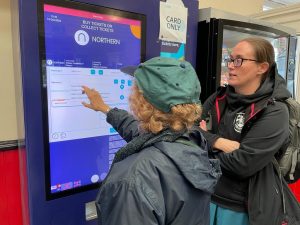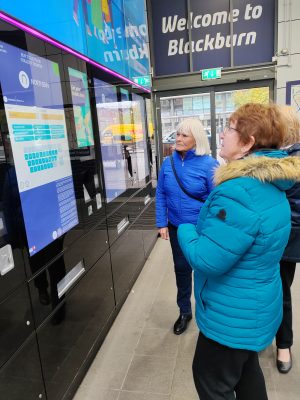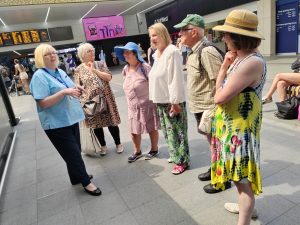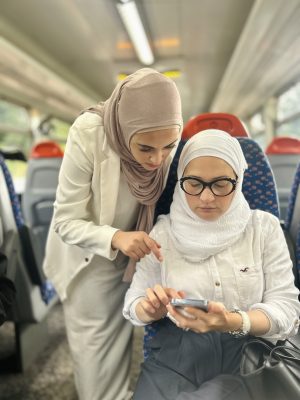Community Rail Lancashire (CRL) has just published a best practice paper regarding a project called Try The Train supported by Northern Railways.
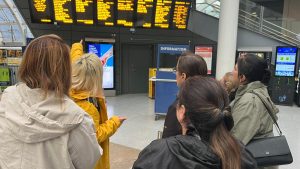
Mums group Manchester July 23
In 2022 Northern were aware that current and potential passengers’ confidence in rail travel had been negatively affected by the pandemic and industrial action. In collaboration with PWLC, CRL developed a pilot engagement programme, called Try The Train, that allowed participants to incrementally develop confidence and independence over a sustained programme of journey planning and familiarisation workshops and rail excursions. The overall objective was to enable low-confidence participants to learn about the benefits and joy of rail travel and be able to access the social, economic, health opportunities and more that the rail network connects people to.
Low-confidence in rail travel can be experienced by a wide range of people, especially since the pandemic, so we consciously recruited 25 pre-existing participant groups with differing demographics, they included; Special Educational Needs and Disability (SEND) students, English as a Second Language (ESOL) students, women’s refuge groups, youth groups from the English Football League Trust, mental health and wellbeing support groups, faith groups, isolated older adults, neurodivergent and autistic young adults.
By collaborating with the Bishop Line Community Rail Partnership, the South Yorkshire Mayoral Combined Authority and a team of 7 freelance facilitators, we had 11 facilitators working across a wide geographical area and were able to facilitate delivery of Try The Train programmes beyond Lancashire. During 2023, 209 participants took part in 75 rail excursions and 100 journey planning workshops and familiarisation workshops with a total of 1265 individual engagements taking place.
Try The Train was quickly established with the development of an activity toolkit and workshop resources, a programme schema and evaluation methodology, induction training and support sessions and a new website (www.trythetrain.org.uk) The resources were co-created with the wider delivery team and trialled by representatives from our target audiences, they included guides to buying tickets and rail passes to support booklets for participants to us after the programme.
It was important to ensure that the delivery of the programme was consistently excellent and that the main objective of increasing confidence in rail travel was met. However, with the groups potentially having different concerns and access requirements, a flexible and bespoke approach was also needed. As such, our delivery team were encouraged to select the most relevant activities and respond to the needs of the group.
Key to the success of the programme was supporting participants to put into practice their ‘classroom’ learning by visiting rail stations and going on rail excursions. Within a supportive and safe environment they were able to address their specific concerns and perceived barriers to rail travel. 86% of those involved became more confident in planning a train journey and over 90% became more confident at finding their way around a train station and taking the train independently. As a result of Try The Train, previously low-confident and/or non-rail passengers have embraced rail travel as a viable option to travel and have the means to access new opportunities across the Northern rail network.
Feedback from a participant, ‘ I enjoyed Try The Train, it was an eye opener. I can now use the train app and the ticket machine and plan to go to see my brother in Ramsgate. It was very educational and interesting.’
Feedback from a facilitator, ‘ I appreciated the flexibility and autonomy that was given over the content of the workshops, it meant I could really adapt things to the group I was working with.’
To download the best practice paper click the link here: Try The Train Best Practice

